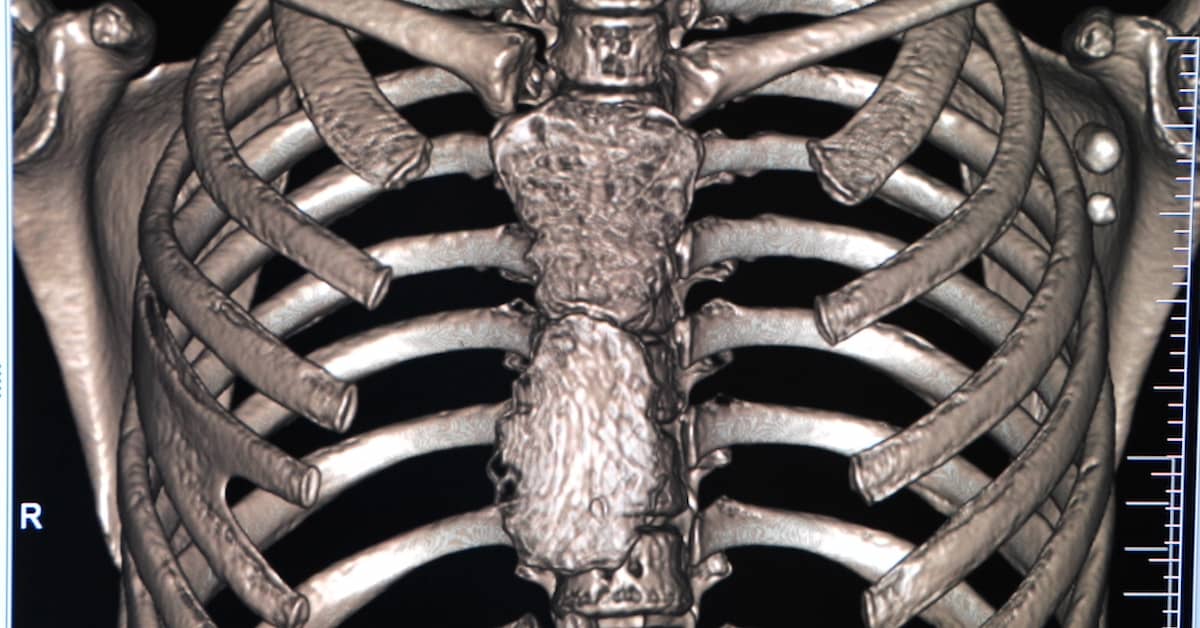
They succeeded in their efforts, but the best was yet to come.
Their remarkable experiment resulted in not only a healthy, renewed thymus gland, but people in the study actually grew biologically younger. Here’s the amazing story.
Described by scientists as "the master gland of the immune system," the thymus - located in the chest between the lungs and the breast bones - converts white blood cells to T cells. These cells play an important role in the immune response. The thymus also produces a variety of hormones.
The thymus gland is very active up until puberty but then its activity slowly wanes. By the time we get to age 50, the gland has shrunk in size and almost all of its functional mass has been replaced with fat. As a result, it’s producing fewer hormones and the reduced function can lead to a weakened immune response.
Immunologist Greg Fahy was so fascinated by a 1986 study in which the thymus glands of rodents were rejuvenated by growth hormones that he experimented with the therapy on himself a decade later.
After seeing some regrowth of his own thymus, Dr. Fahy was hooked on this area of research. In 2019, he and colleagues at Stanford and UCLA published the first thymus regeneration trial in humans.
Thymus Regrows
Nine male volunteers between the ages of 51 and 65 were given recombinant human growth hormone (rhGH). This hormone is involved in a wide range of functions in metabolism, growth, development and immunity.Since injecting rhGH carries an increased risk for diabetes, the volunteers were also given two other drugs, DHEA and metformin, for protection.
After nine to 12 months, seven of the men saw new thymus tissue being formed and clear physical indications of age reversal.
"The present study," the researchers wrote, "now establishes highly significant evidence of thymic regeneration in normal aging men accompanied by improvements in a variety of disease risk factors and age-related immunological parameters..."
But the best was yet to come. Since the scientists had already regenerated the thymus gland for the first time in humans, they decided they might as well test the therapy against a person's biological age. To their great surprise, the men grew biologically younger.
Aging Backwards
When researchers measured the participants' epigenetic clocks through modifications to molecules tagged to DNA, considered the most accurate reflection of a person's biological age rather than their age in years, they made some surprising findings.After nine months, the epigenetic or biological age of the men wasn't just slowed, it was actually reversed, and these nine men became 2½ years younger! What's more, the age-reversing effects persisted six months after the trial ended.
Dr. Fahy said this is "a treatment we believe in some important ways can reverse aspects of human aging."
Another member of the research team, geneticist Steve Horvath, added, "I’d expected to see slowing down of the clock, but not a reversal. That felt kind of futuristic.
"[Because] the biological effect of the treatment was robust [and] we could follow the changes within each individual, and because the effect was so very strong in each of them, I am optimistic."
Thymus Health Dictates Immune Health
The findings have great potential because - as the scientists point out in their paper - a shrunken thymus is linked to depletion of critical immune cells, increased incidence of cancer, infectious diseases, autoimmune conditions, generalized inflammation, atherosclerosis and all-cause mortality."In contrast," they write, "maintained immune function is seen in centenarians."
The researchers did have some concerns that growth hormone could be problematic for the prostate and for generalized inflammation, but actually found the opposite. Prostate markers improved as did markers of inflammation.
Experts Agree
While this was a very small study only conducted in men, and epigenetic aging is not identical to aging itself, experts were impressed.Cancer immunologist Sam Palmer, of Heriot-Watt University in Edinburgh, said boosting immune cells "has huge implications not just for infectious disease but also for cancer and aging in general."
And Steven Salzberg, Bloomberg Distinguished Professor of Biomedical Engineering, Computer Science, and Biostatistics at Johns Hopkins University, agreed, saying, "Unlike many other anti-aging treatments, this one has genuine plausibility. If this holds up, it could literally be life-changing for millions of people."
A new, much larger 12 month trial is currently in progress and is expected to report initial findings next year.
- https://onlinelibrary.wiley.com/doi/full/10.1111/acel.13028
- https://www.nature.com/articles/d41586-019-02638-w
- https://www.medicalnewstoday.com/articles/326329
- https://www.forbes.com/sites/stevensalzberg/2019/09/16/is-this-new-3-drug-combo-a-fountain-
of-youth/?sh=52b2e5506e7f - https://www.youtube.com/watch?v=-ow_Tems3I0
